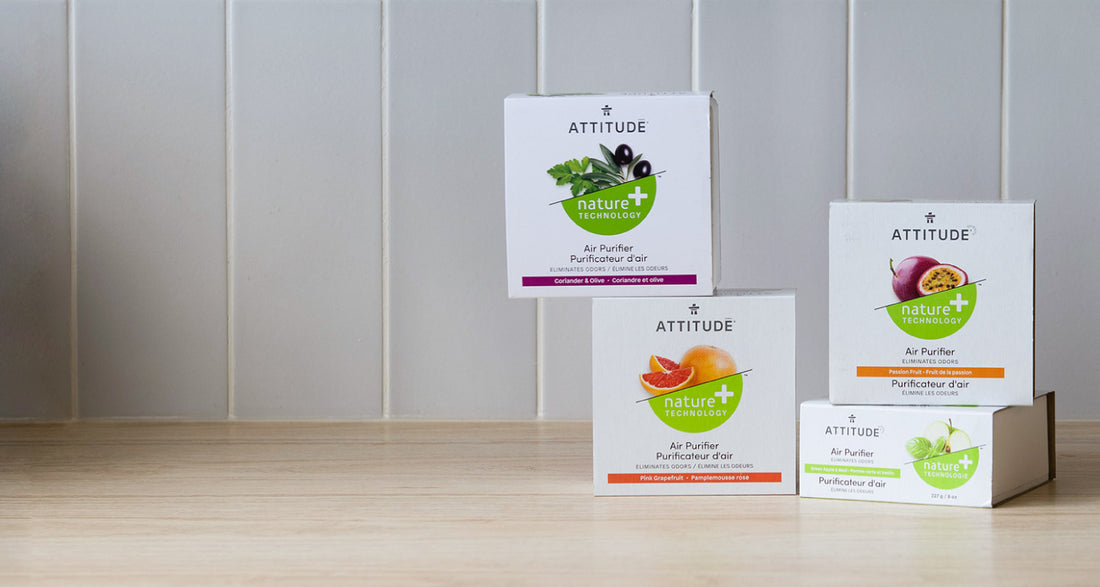When we talk about air pollution, we usually think of outside our homes where the cars and planes run rampant, contributing to dirty air. But did you know that, according to the Environmental Protection Agency, indoor air is often between two and five times more polluted than outdoor air? We know! Who would think the simple act of breathing within your own sanctuary could be detrimental to your health? Here are five reasons to use an air purifier along with other good cleaning methods.
1. To eliminate viruses and bacteria
The pandemic has reinforced the fact that without adequate ventilation, bacteria and viruses can remain trapped inside indoor spaces for a long time, particularly those that are cramped and crowded. Fortunately, there is a simple solution to reduce infectious pathogens and microbes in a room: OPEN THE WINDOWS! The more you open, the more fresh air you allow to circulate. Even during the colder months, put on a sweater and open the windows, several times a day for just a few minutes at a time. If one of your most used rooms cannot be properly ventilated, the Government of Canada recommends considering mechanical ventilation.1

2. To sanitize a new ppace during a move
If you are moving soon, this is the perfect time to get yourself a good air purifier. No one knows how the previous occupants lived in your future haven. For example, if they were smokers, you should take every step to eliminate third-hand smoke, which can linger in walls and floors for years.2 Furthermore, cigarettes aren’t the only type of smoke that can cause health problems. Burning wood or paper produces high concentrations of formaldehyde, a chemical substance of natural origin that, when inhaled in large quantities, can cause cancer and other health complications.3
Your home comes decorated with a fireplace that the entire family will gather around? We don’t want you to be deprived of making those memories together. One way to help clean the air is to get an air purifier made with activated charcoal, one of nature’s most powerful filters. These are infused with sweet aromas to create the most soothing atmosphere while retaining their effectiveness for up to six weeks. There are even ones for the baby’s room! Another source of smoke to avoid is burning paraffin candles. Instead, replace them with candles that are made with real beeswax for a longer lasting and completely natural burn.
3. To get rid of mould
Not only is mould unpleasant to look at, it can also be bad for your health! When mould is in an indoor space, small particles disperse through the air and penetrate deep into the lungs. Exposure to this type of contamination is typically associated with symptoms of asthma.4 In addition to placing an air purifier in your most humid rooms (i.e., the bathroom), other easy solutions that can help prevent the appearance of mould include cleaning your shower curtain and walls frequently, avoid giving your plants too much water, and, mostly, air out the space.
4. To reduce dust
One day your furniture is sparkling and the next day the entire household is sneezing loudly due to the rapid accumulation of dust that now covers everything. But where does the dust come from and how did it get inside? House dust consists mainly of dead skin cells, dust mite particles, or worse, dust mite excrement. In fact, according to the American Lung Association, a human can shed about 1.5 g of dead skin every day. You don’t think that is a lot? That is enough to feed one million dust mites!5 Now that your ears are perked up, understand that it is neither possible nor necessary to eradicate all these microscopic parasites, but you can take measures to limit their presence within your indoor spaces. To do so, avoid carpets and rugs, which are dust magnets, vacuum once a week, clean your surfaces with a damp cloth, mop your floors, and wash your sheets and curtains regularly.
5. To remove previous household chemicals
Too many household products on the market release toxic ingredients. According to the California Office of Environmental Health Hazard Assessment, these include:
- Formaldehyde, previously discussed
- 1-4 dioxane, a substance that is deemed possibly carcinogenic6
- Phthalates and pesticides, which are endocrine disruptors7
- Isothiazolinones, a family of antimicrobials associated with eczema-like itching8
What is even more alarming is that manufacturers of beauty or household products – even those who claim to offer eco-friendly alternatives – are not required to provide an extensive list of contaminants that are included in their products.9 Simply put, if an ingredient is present in a product as an impurity, residue or substance resulting from the manufacturing process, the chances of it appearing on the label are highly unlikely. Luckily, there are authentic brands that are truly eco-responsible and fully transparent when it comes to offering healthy household products with ingredients of natural origin. This collection includes several cleansing and purifying solutions whose formulas are ECOLOGO® certified and biodegradable, notably a variety of air purifiers that diffuse delicate aromas of coriander and olive, pink grapefruit, green apple and basil, lavender and eucalyptus or passion fruit.
Are you preparing for a major cleaning, either for a move or change of season? Adopting a good air purifier before you begin will help to keep you from being overwhelmed with dust. In addition, this article on the ingredients to avoid in your cleaning products may interest you as well…
Sources
- https://www.canada.ca/en/public-health/services/diseases/2019-novel-coronavirus-infection/prevention-risks/covid-19-improving-indoor-ventilation.html
- https://www.quebecsanstabac.ca/je-minforme/tabac-toutes-formes/types-fumees-tabac (Only available in French)
- https://www.lung.org/clean-air/at-home/indoor-air-pollutants/formaldehyde
- https://www.canada.ca/en/health-canada/services/publications/healthy-living/residential-indoor-air-quality-guideline-moulds.html
- https://www.lung.org/clean-air/at-home/dust-briefing
- https://oehha.ca.gov/proposition-65/proposition-65-list
- https://www.niehs.nih.gov/health/topics/agents/endocrine/index.cfm
- https://go.drugbank.com/drugs/DB14197
- https://www.ewg.org/guides/cleaners/content/findings/


